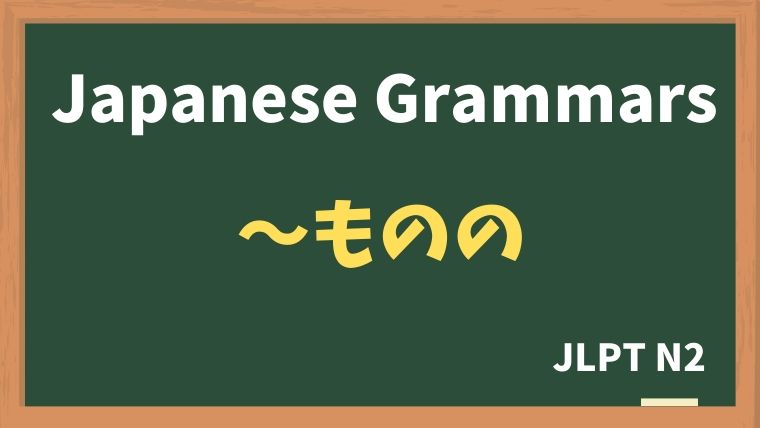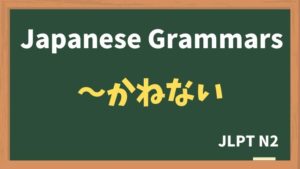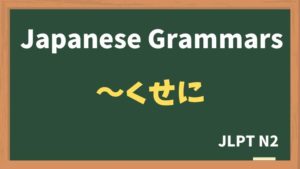
Explanation:〜ものの
fa-check-circleMeaning
"けれども"
"but / however."
Indicate that expectations or wishes based on certain established facts mentioned in the first clause differ from reality.
fa-check-circleForm
V(plain form) + ものの
イA(plain form) + ものの
ナAである + ものの
Nである + ものの
fa-check-circlePoints
- Contrast or Concession: "〜ものの" is used to show that something is true or exists, but it does not lead to the expected result or outcome.
- Formal Usage: It is commonly used in written and formal contexts.
fa-check-circleJLPT Level
N2
Sample sentenes
息子は良い大学を卒業したものの、就職せずに毎日家でゲームばかりしている。
My son graduated from a good university but spends every day at home playing games without getting a job.
日本へ留学したものの、私の日本語はあまり上手にならなかった。
Although I studied abroad in Japan, my Japanese didn't improve much.
新しいくつを買ったものの、まだ一度もはいていない。
I bought new shoes, but I haven't worn them yet.
この会社の給料はあまり良くないものの、人間関係はいいので、満足している。
The salary at this company isn't very good, but I'm satisfied because the relationships with colleagues are good.
このかばんは安かったものの、丈夫で質が良い。
Although this bag was cheap, it's durable and of good quality.
Vocabulary
| Japanese |
English | |
| 留学 | りゅうがく | studying abroad |
| 人間関係 | にんげんかんけい | interpersonal relationships |
| 満足する | まんぞする | to be satisfied |
| 質 | しつ | quality |






